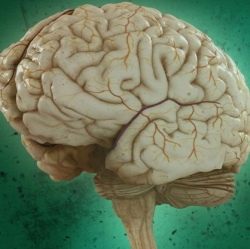
A study suggests that meditation may help preserve the brain’s gray matter that contains neurons. The researchers cautioned that they cannot draw a direct, causal connection between meditation and preserving gray matter in the brain. Many other factors may come into play, including lifestyle choices and genetic differences.
Since 1970, life expectancy around the world has risen dramatically, with people living more than 10 years longer. That’s the good news. The bad news is that starting when people are in their mid-to-late-20s, the brain begins to wither, its volume and weight begin to decrease.
As baby boomers have aged and the elderly population has grown, the incidence of cognitive decline and dementia has increased substantially as the brain ages. “In that light, it seems essential that longer life expectancies do not come at the cost of a reduced quality of life,” said Dr. Eileen Luders, first author and assistant professor of neurology at the David Geffen School of Medicine at UCLA.
“While much research has focused on identifying factors that increase the risk of mental illness and neurodegenerative decline, relatively less attention has been turned to approaches aimed at enhancing cerebral health.”
As this occurs, the brain can begin to lose some of its functional abilities. Although people are living longer, the years they gain often come with increased risks for mental illness and neurodegenerative disease.
So building on their earlier work that suggested people who meditate have less age-related atrophy in the brain’s white matter, the scientists have now looked specifically at the association between age and gray matter.
